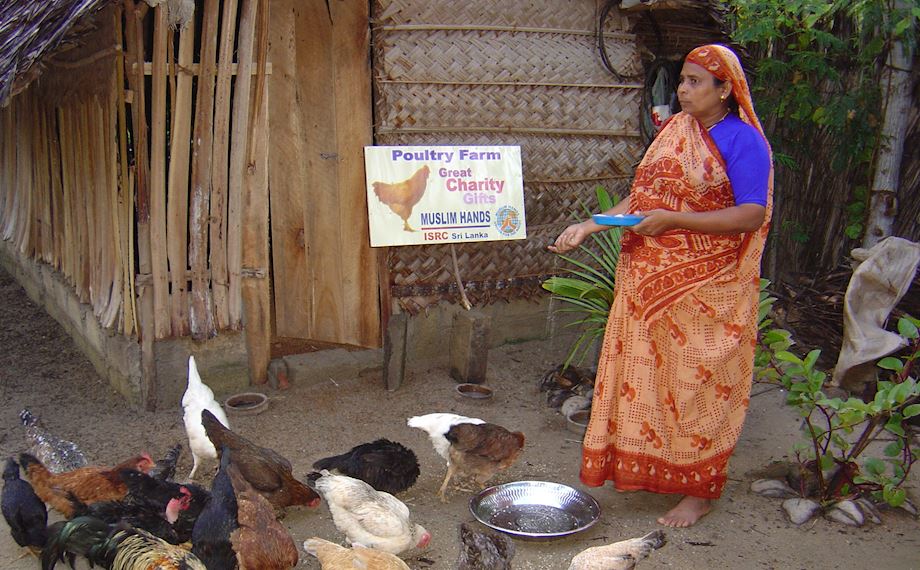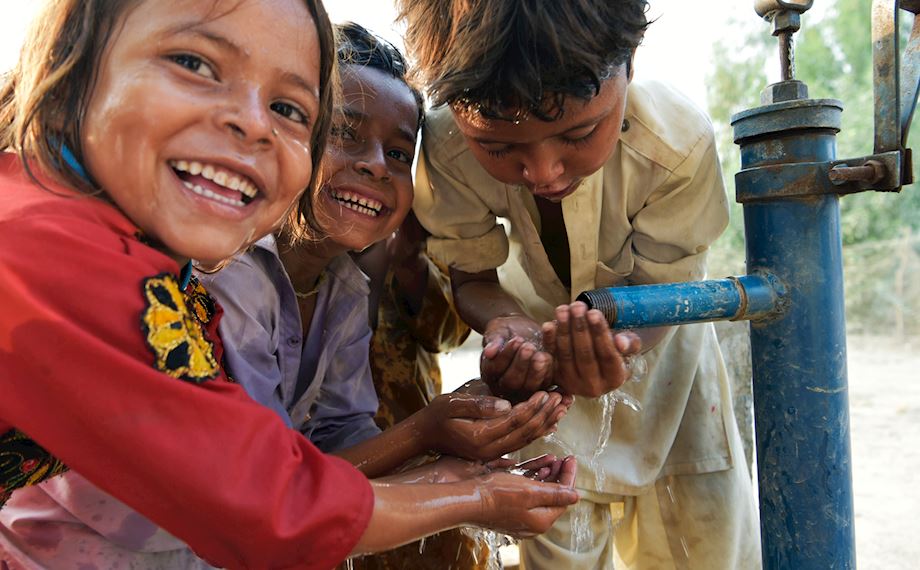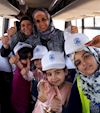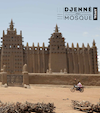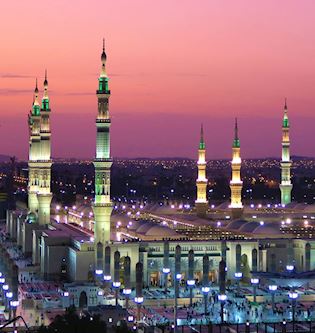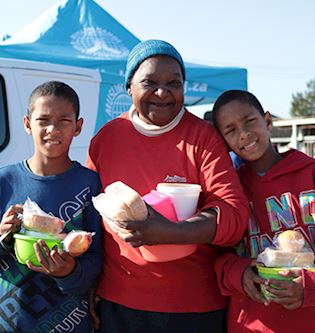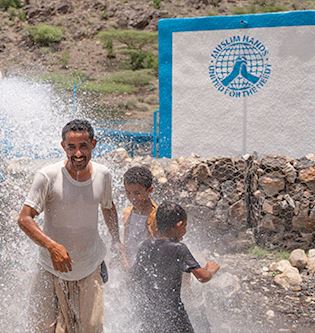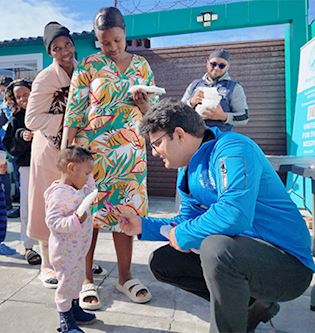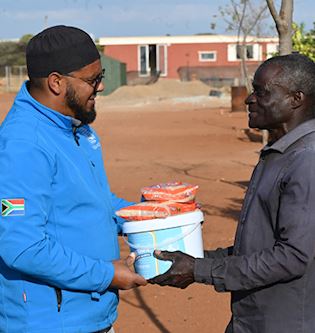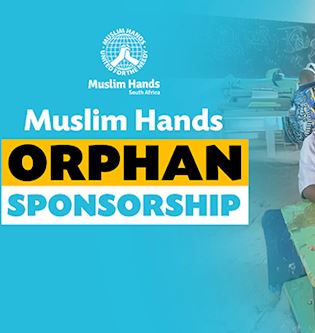Four Ways Prophet Muhammad (saw) Performed Sadaqah
Humble, modest and loving, Prophet Muhammad (saw) was known for his generosity. As 'the most generous of all the people […]' (Bukhari), The Prophet (saw) continuously encouraged his followers to help others, calling upon Muslims to support their families, neighbours, communities and the wider Ummah. Emphasising the importance of charity, The Prophet (saw) said:
‘Generosity is near to Allah, near to Paradise, near to the people, and far from the Hellfire […]’ (Tirmidhi)
To become closer to Allah (swt), we look to Prophet Muhammad (saw) as a guide, teacher and example of what a good Muslim should be. So, on our path towards Allah (swt), let us look at the final Messenger of Allah for inspiration on how to help our brothers and sisters in need worldwide.
1. He fed the poor
As Muslims, we are urged to help ensure the poor and needy do not go hungry. Prophet Muhammad (saw) said:
‘He is not a Muslim whose stomach is full while his neighbour goes hungry.’ (Muslim)
At this very moment, Somalia and South Sudan are facing what has been described by the UN as the worst humanitarian crisis since World War II. Severe drought and years of ongoing conflict have devastated the region and thousands of families have been left displaced, malnourished and facing imminent starvation. In Somalia, over 12 million people are at risk of starvation whilst in South Sudan, desperate families have even resorted to foraging for leaves and boiling tree bark to survive. Families across the region need urgent food relief in order to survive.
For just R860 you can feed a family of five for a whole month, providing life saving aid to a family in crisis and fulfilling this important part of the Sunnah.
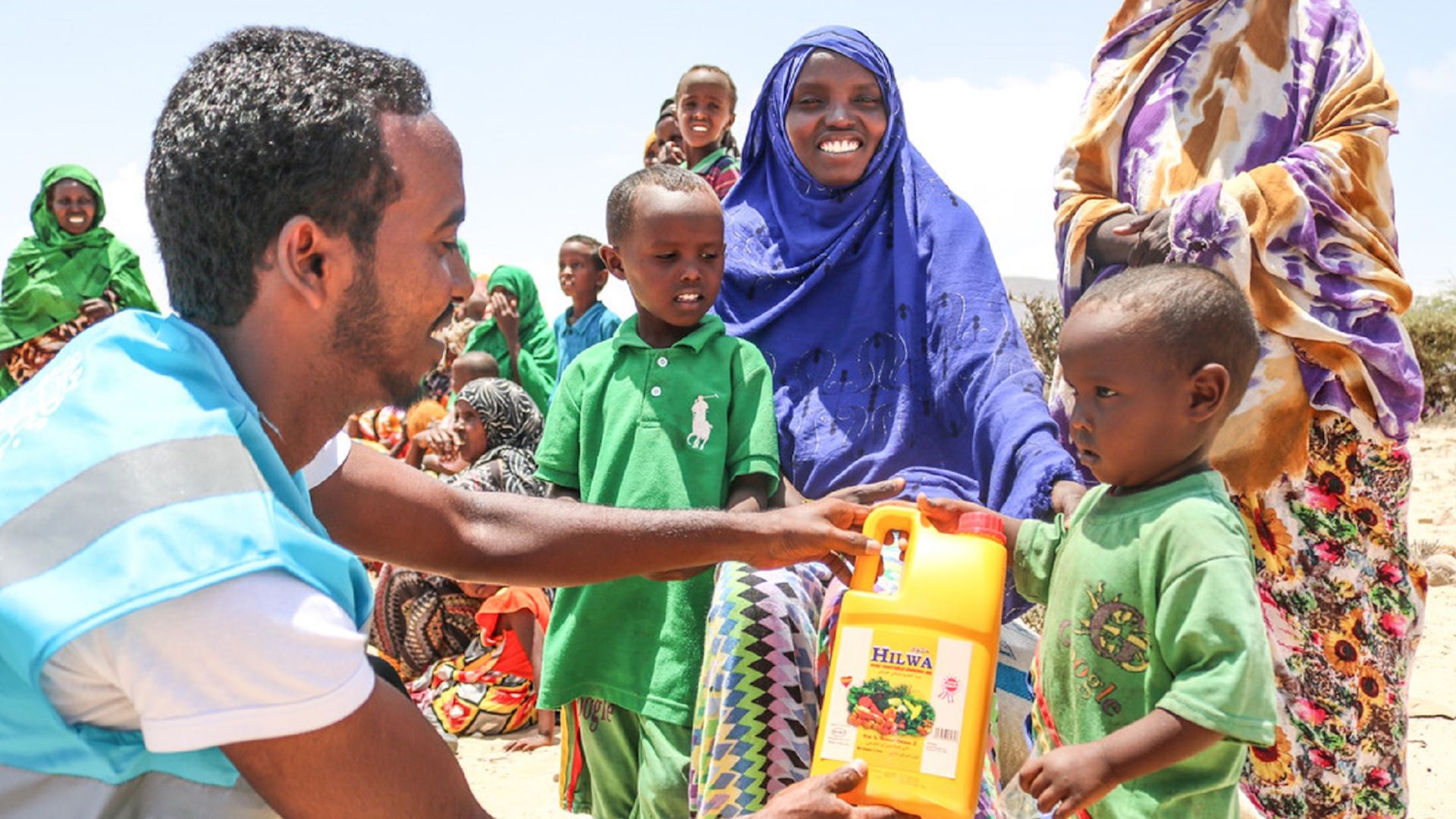
2. He gave water to the needy
Water is our source of life and a blessing from Allah (swt). With water, we nourish, clean and refresh our bodies, cleanse our souls through whudu and ghusl and remember the hardships and struggles of Hajar (ra) when we perform Hajj. Allah (swt) in the Holy Qur’an tells us: ‘By means of water, we give life to everything’ (21:30). Without water, we cannot survive. Prophet Muhammad (saw) therefore taught us to not waste water and to share this precious source with others:
‘The best form of charity is to give someone water (to drink).’ (Ibn Majah)
However, the reality is that 783 million people worldwide do not have access to clean water. An estimated 842,000 people die each year from diarrhoea due to unsafe drinking water and UN Water now estimates that by 2025, 1800 million people will be living in areas with scarce access to water. Communities urgently need water, sanitation and hygiene (WASH) facilities such as wells, water tanks and latrines.
From just as little as R3 500, you can donate a tube well for a community in need, providing clean, safe water to drink.

3. He helped orphans
Children are the future and must be nurtured, protected and encouraged in their journey to adulthood. Parents are responsible for providing financially for their children and giving them both emotional support and the correct spiritual and moral education to help them grow up to be healthy, wise and strong. Yet imagine those children who do not have the financial and emotional stability of a father and/or mother? As Prophet Muhammed (saw) teaches us, we must protect and support vulnerable orphans:
‘Blessed is the wealth of the Muslim, from which he gives to the poor, the orphan and the wayfarer.’ (Muslim)
Worldwide, an estimated 200 million children are orphaned and in need of emotional and financial support to help them go to school, eat healthily and live happy, safe lives.
For just R600 a month (R7 200 a year) you can sponsor an orphan and join our community of over 12,000 sponsors providing children across 20 countries with an education, nutritious meals, healthcare and emotional support.
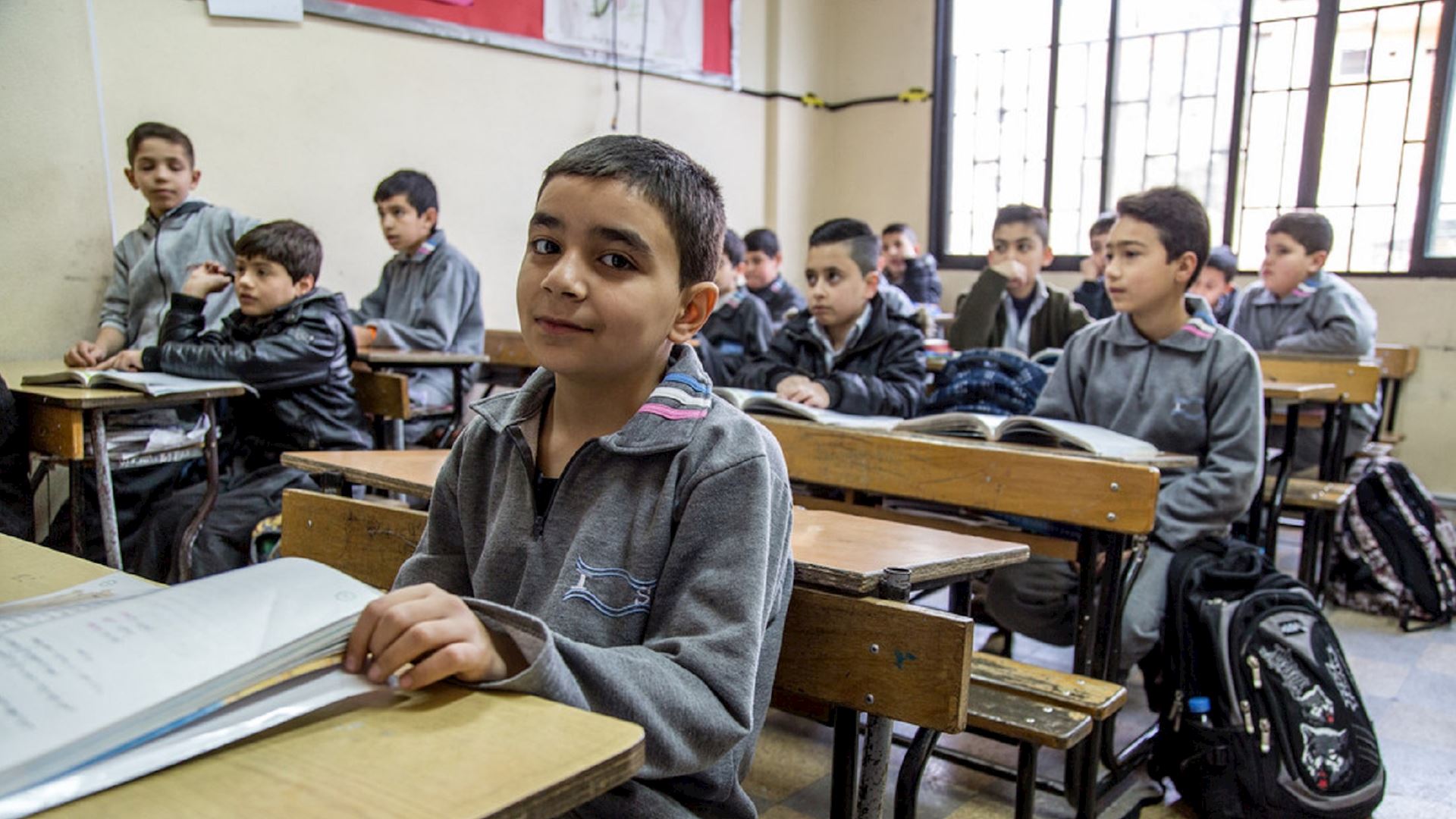
4. He took care of widows
Prophet Muhammad (saw) encouraged his Ummah to look after our widowed sisters who remain emotionally and financially vulnerable following the death of their husband:
'The person who assists and takes care of the widow […] is like the person who is striving in the path of Allah […]’ (Bukhari; Muslim)
For widows who relied upon the income of their husbands, life can be incredibly hard. In developing countries, many people have the skills and enthusiasm to generate an income for themselves, yet lack the opportunity to put this into practice. Without the right training, networks or capital for equipment and tools, it can be incredibly difficult to find a job or set up a new business to earn a living and maintain a sustainable livelihood.
For just R240, you can provide a widow or vulnerable mother with four chickens to benefit her and her whole family. Each hen can lay over 200 eggs a year, providing a crucial source of protein to sustain families, whilst surplus eggs can be sold to pay for clothes, medicine and schooling.
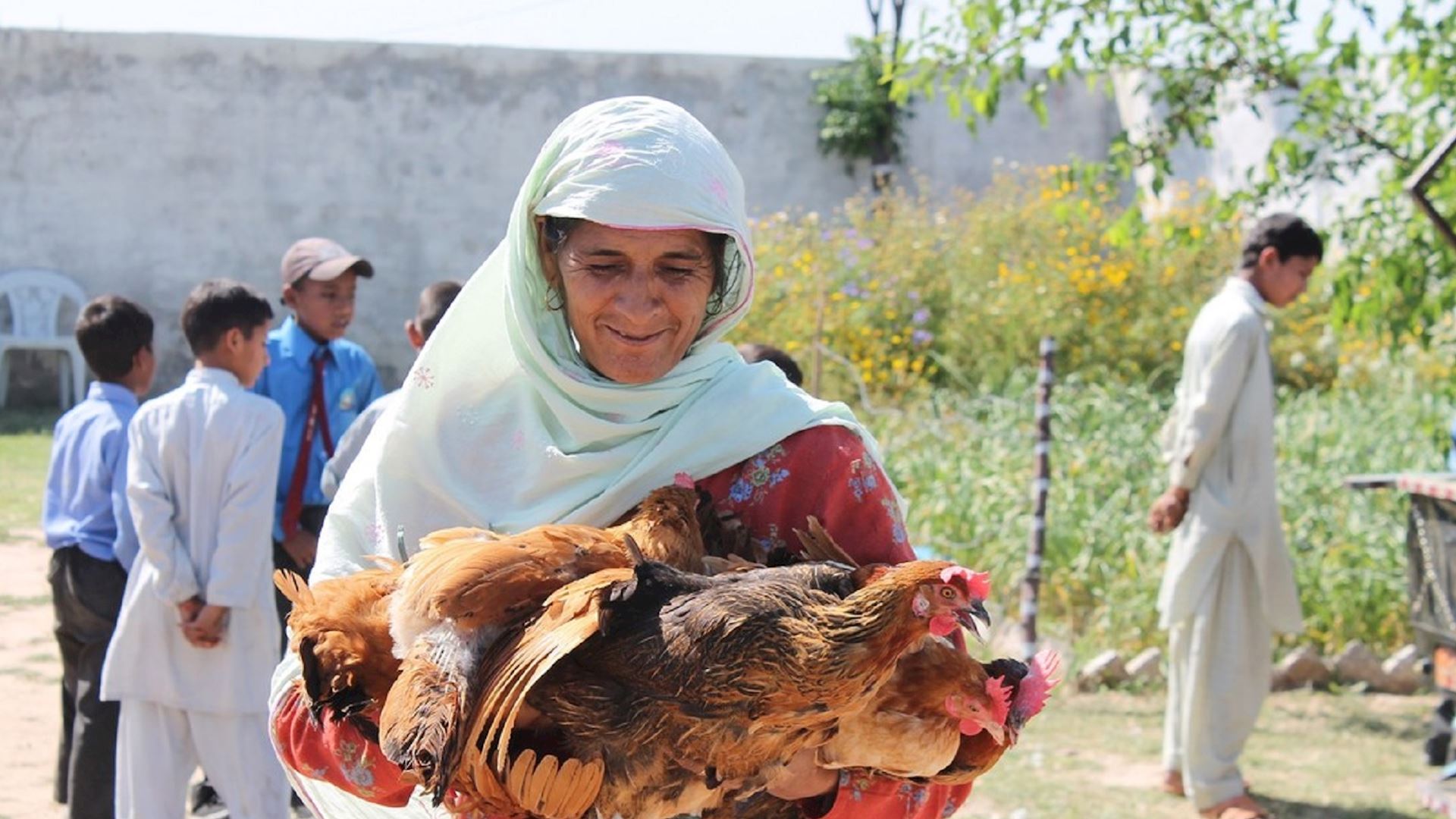
As we look to the example of Prophet Muhammad (saw) for guidance in fulfilling our duties as Muslims, we are reminded of the need to help others who lack even the daily essentials we enjoy, but may take for granted. The Prophet (saw) said:
‘None of you have faith until you love for your neighbour what you love for yourself.’ (Muslim)
So, brothers and sisters, donate today and follow in the footsteps of Prophet Muhammad (saw).





